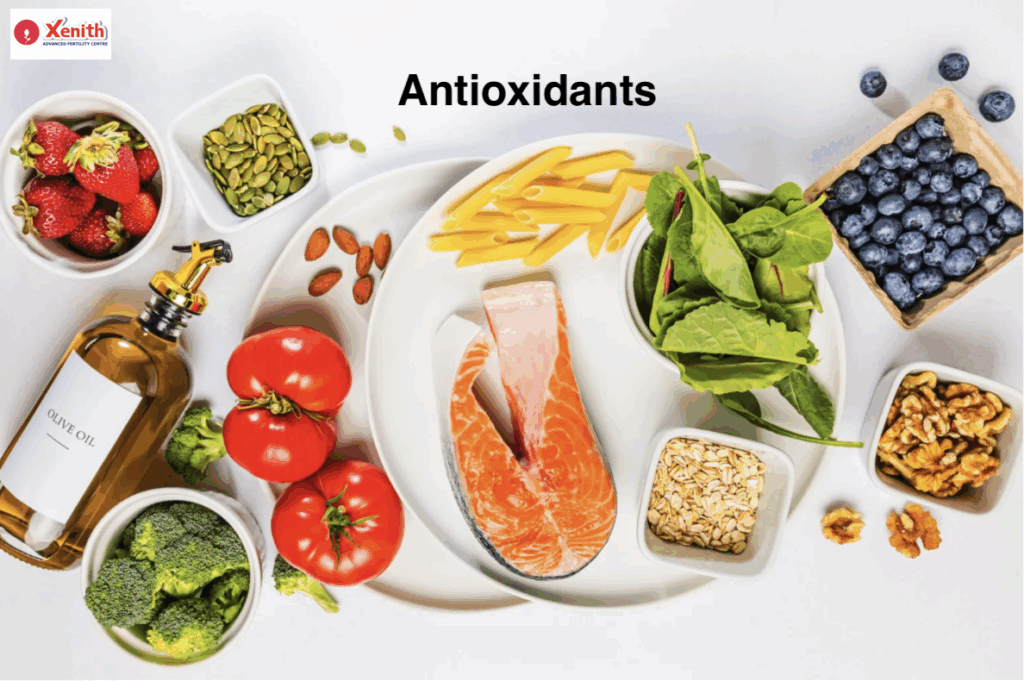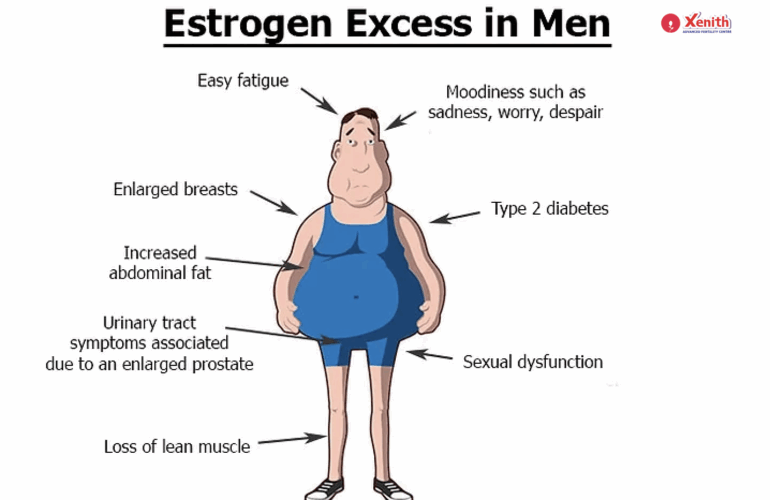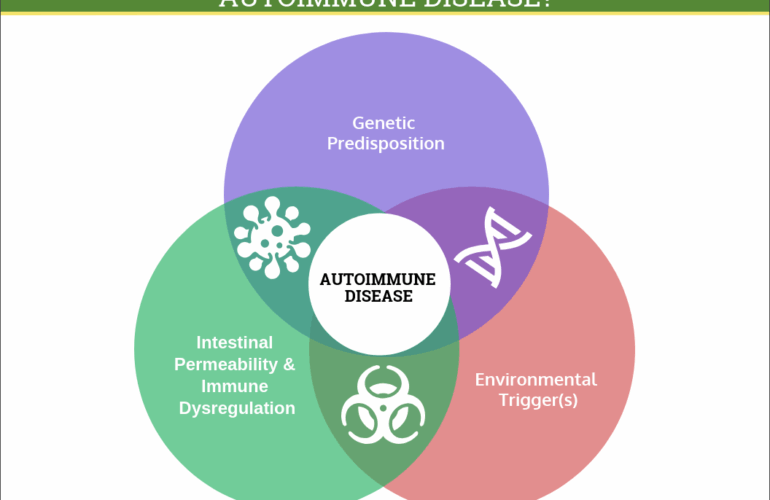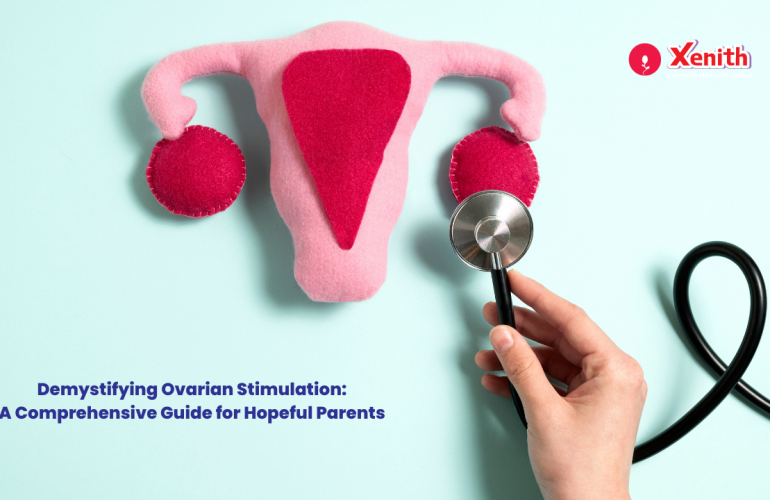When couples face difficulties conceiving, the focus often shifts to sperm count and motility. But there’s another important factor that doesn’t get as much attention—sperm DNA fragmentation. Think of it as the “genetic blueprint” inside sperm. If that blueprint is damaged, even healthy-looking sperm may struggle to fertilize an egg or support early embryo development.
The good news? Diet and nutrition can play a powerful role in improving sperm DNA quality. With the right foods and lifestyle changes, you can give your fertility a meaningful boost. Let’s dive in.

Free Thursday Consultation
Book Your AppointmentWhat is Sperm DNA Fragmentation?
Inside every sperm is DNA, the genetic material that carries half the blueprint for creating new life. Sperm DNA fragmentation happens when that genetic material gets broken or damaged.
Some fragmentation is normal, but when levels are too high, it reduces the chances of healthy fertilization and pregnancy.

Why is it Important for Fertility?
High sperm DNA fragmentation can lead to:
- Lower fertilization rates
- Poor embryo development
- Higher miscarriage risk
- Challenges with IVF or ICSI treatments
So, even if your sperm count and motility are good, damaged DNA can still stand in the way of starting a family. That’s why focusing on sperm quality, not just quantity, is so important.
The Impact of Diet on Sperm DNA Fragmentation
Here’s the encouraging part—your daily food choices really do make a difference. Oxidative stress (caused by free radicals in the body) is one of the main culprits behind DNA damage in sperm. And what combats oxidative stress? Nutrients found in wholesome, antioxidant-rich foods.
A diet rich in vitamins, minerals, and healthy fats can improve sperm DNA integrity, while poor eating habits can make fragmentation worse.
Key Nutrients for Improving Sperm DNA Integrity
1. Antioxidants (Vitamin C, Vitamin E, Selenium)
Antioxidants protect sperm DNA from free radical damage.
- Vitamin C (found in citrus, bell peppers, berries) strengthens sperm against oxidative stress.
- Vitamin E (found in nuts, seeds, spinach) protects cell membranes from damage.
- Selenium (found in Brazil nuts, eggs, fish) helps maintain sperm structure and motility.

2. Omega-3 Fatty Acids
These healthy fats improve sperm membrane flexibility and DNA integrity. You’ll find them in fatty fish like salmon, walnuts, and flaxseeds.

3. Coenzyme Q10 (CoQ10)
A natural antioxidant that supports energy production in sperm, improving motility and DNA health. It’s found in organ meats, oily fish, and can also be taken as a supplement.
4. Zinc
Zinc is crucial for sperm production and protects DNA from damage. Sources include pumpkin seeds, legumes, and whole grains.

5. Folate
This B-vitamin helps repair DNA and reduce damage. Good sources are leafy greens, beans, and fortified cereals.

Foods to Include in Your Diet
Building a fertility-friendly plate doesn’t have to be complicated. Focus on whole, nutrient-dense foods like these:
- Fruits and Vegetables: Colorful produce like berries, oranges, carrots, and leafy greens are loaded with antioxidants.
- Nuts and Seeds: Almonds, walnuts, pumpkin seeds, and flaxseeds bring healthy fats, vitamin E, and zinc.
- Fatty Fish: Salmon, sardines, and mackerel provide omega-3s.
- Whole Grains: Brown rice, oats, and quinoa support steady energy and micronutrient intake.
Foods to Avoid That Can Increase Sperm DNA Fragmentation
Just as some foods protect sperm, others can damage DNA and worsen fragmentation. Try to cut down on:
- Processed Foods: High in trans fats, preservatives, and low in nutrients.
- High Sugar Intake: Excess sugar leads to inflammation and oxidative stress.
- Excessive Alcohol: Alcohol impairs liver function, increases free radicals, and lowers fertility.

Supplements to Consider
Sometimes diet alone may not cover everything, especially if deficiencies are present. Supplements that may help include:
- Vitamin C & E
- Selenium
- Zinc
- Omega-3 capsules
- CoQ10
- Folate
Always check with a healthcare provider before starting new supplements to avoid overdosing or interactions with medications.
Lifestyle Factors That Complement a Healthy Diet
Diet is powerful, but lifestyle choices add another layer of protection against sperm DNA damage.
- Exercise: Moderate activity improves circulation and hormone balance. Too much intense training, though, can increase oxidative stress.
- Stress Management: Chronic stress raises cortisol, which negatively impacts fertility. Mindfulness, meditation, or hobbies can help.
- Quit Smoking: Cigarette toxins are directly linked to DNA fragmentation.
- Adequate Sleep: Poor sleep disrupts hormones that regulate sperm health.

Conclusion: The Power of Nutrition for Sperm Health
Improving sperm DNA fragmentation isn’t about a quick fix—it’s about consistently making better choices for your body. The food you eat every day can protect and repair DNA, improving your chances of conception and supporting a healthier pregnancy.
If you and your partner are trying to conceive, consider your diet part of your fertility plan. With patience and commitment, nourishing your body can help create the best possible foundation for new life.
FAQ
It refers to damage or breaks in the DNA inside sperm. High fragmentation reduces fertility and increases miscarriage risk.
Antioxidants (Vitamin C, E, Selenium), Omega-3s, CoQ10, Zinc, and Folate are especially helpful.
Yes—processed foods, excess sugar, and too much alcohol can all worsen sperm DNA fragmentation.
Supplements like CoQ10, Omega-3s, and antioxidants may help, especially when combined with a healthy diet. Always consult a doctor first.
Since sperm production takes about 70–90 days, most men notice improvements within 3–6 months of consistent diet and lifestyle changes.




